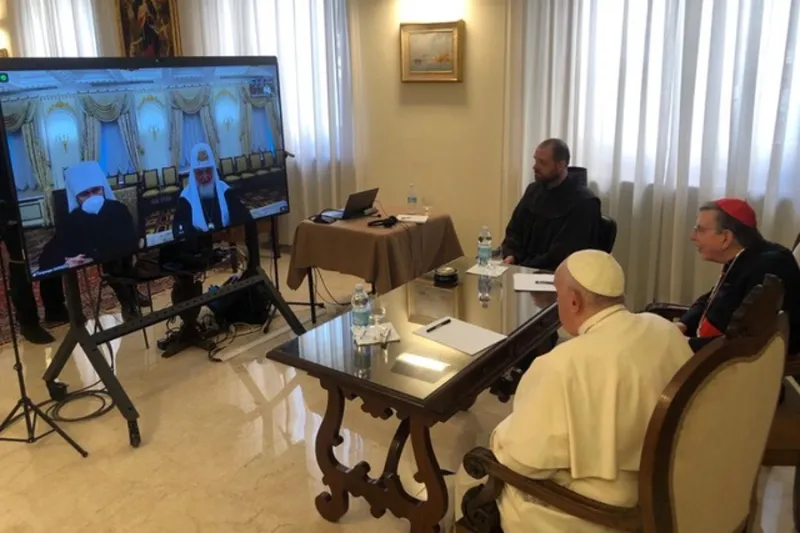
Vatican City, Apr 22, 2022 / 09:48 am (CNA).
In an interview with an Argentine newspaper, Pope Francis said a meeting with Russian Orthodox Patriarch Kirill will no longer take place as planned.
The summit, which would have been the second meeting of the pope and patriarch, was expected to take place in Jerusalem in June, during the pope’s June 12 trip to Lebanon.
“I regret that the Vatican has had to cancel a second meeting with Patriarch Kirill,” Pope Francis said in the interview published in La Nacion.
The pope said his relationship with Kirill is “very good,” but “our diplomacy understood that a meeting of the two of us at this time could cause a lot of confusion.”
Pope Francis met with Patriarch Kirill at Havana’s airport Feb. 12, 2016, in the first summit between a pope and a Patriarch of Moscow.
The Russian Orthodox Church is an autocephalous Eastern Orthodox Church with an estimated 150 million members, accounting for more than half of the world’s Orthodox Christians.
Pope Francis has sought to strengthen Catholic-Orthodox ties since his election in 2013.
In the La Nacion interview, the pope also responded to a question about why he has not named Putin or Russia in his comments on the Ukraine war.
Pope Francis had been criticized for not calling out Russia or President Vladimir Putin by name in his speeches since the start of the invasion of Ukraine.
“A pope never names a head of state, much less a country, which is superior to its head of state,” he said.
About the Vatican’s efforts to intervene in the war, he said, “the Vatican never rests. I cannot tell you the details because they would cease to be diplomatic efforts. But the attempts will never stop.”
Francis also conveyed doubts about the helpfulness of a papal visit to Kyiv, after he expressed a willingness to visit the Ukrainian capital during a trip to Malta earlier this month.
“I cannot do anything that puts higher objectives at risk, which are the end of the war, a truce or, at least, a humanitarian corridor. What good would it do for the pope to go to Kyiv if the war continued the next day?” he told the newspaper.
If you value the news and views Catholic World Report provides, please consider donating to support our efforts. Your contribution will help us continue to make CWR available to all readers worldwide for free, without a subscription. Thank you for your generosity!
Click here for more information on donating to CWR. Click here to sign up for our newsletter.




Leave a Reply